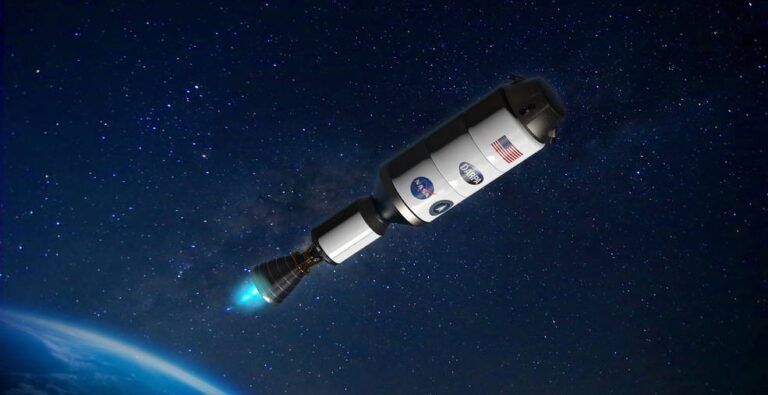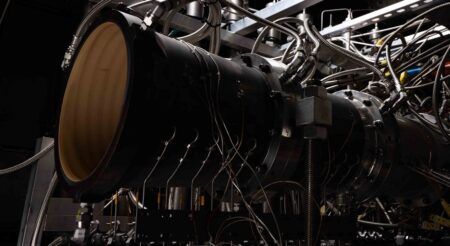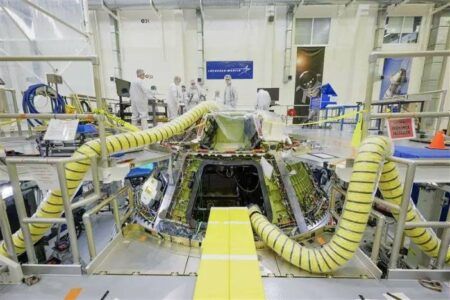NASA and DARPA are to demonstrate a nuclear thermal rocket engine in space, with a view to using the technology to send crewed missions to Mars.
The Demonstration Rocket for Agile Cislunar Operations (DRACO) program will develop and flight test in space nuclear thermal propulsion technology that could be used to transport astronauts to Mars and beyond.
The research agencies plan to send the DRACO test vehicle into space and run the nuclear engine in 2027.
NASA’s Space Technology Mission Directorate (STMD) will lead technical development of the nuclear thermal engine, which will be integrated with an experimental spacecraft developed by the Defense Advanced Research Projects Agency (DARPA).
A nuclear thermal rocket engine uses a fission reactor to generate extremely high temperatures. The engine transfers the heat produced by the reactor to a liquid propellant, which is expanded and exhausted through a nozzle to propel the spacecraft.
Engineers believe that nuclear thermal rockets can be three or more times more efficient than conventional chemical propulsion.
NASA Administrator Bill Nelson said, “NASA will work with our long-term partner DARPA to develop and demonstrate advanced nuclear thermal propulsion technology as soon as 2027.
“With the help of this new technology astronauts could journey to and from deep space faster than ever – a major capability to prepare for crewed missions to Mars.”
Using a nuclear thermal rocket will enable faster transit times, reducing risk for astronauts. Reducing transit time is a key component for human missions to Mars, as longer trips require more supplies and more robust systems.
Other benefits to space travel include increased science payload capacity and higher power for instrumentation and communication, said NASA.
DARPA is acting as the contracting authority for the development of the entire stage and the engine, which includes the reactor. DARPA will also lead the overall program including rocket systems integration and procurement, approvals, scheduling, and security, cover safety and liability, and ensure overall assembly and integration of the engine with the spacecraft.
Over the course of the development, NASA and DARPA will collaborate on assembly of the engine.
Stefanie Tompkins, director at DARPA said, “The space domain is critical to modern commerce, scientific discovery, and national security. The ability to accomplish leap-ahead advances in space technology through the DRACO nuclear thermal rocket program will be essential for more efficiently and quickly transporting material to the Moon and eventually, people to Mars.”
Nuclear thermal rocket engine testing was last conducted by the USA more than 50 years ago under NASA’s Nuclear Engine for Rocket Vehicle Application and Rover projects.
“With this collaboration, we will leverage our expertise gained from many previous space nuclear power and propulsion projects,” said Jim Reuter, associate administrator for STMD. “Recent aerospace materials and engineering advancements are enabling a new era for space nuclear technology, and this flight demonstration will be a major achievement toward establishing a space transportation capability for an Earth-Moon economy.”
NASA, the Department of Energy (DOE) and industry are also developing advanced space nuclear technologies for multiple initiatives to harness power for space exploration. Through NASA’s Fission Surface Power project, DOE awarded three commercial design efforts to develop nuclear power plant concepts that could be used on the surface of the Moon and, later, Mars.





